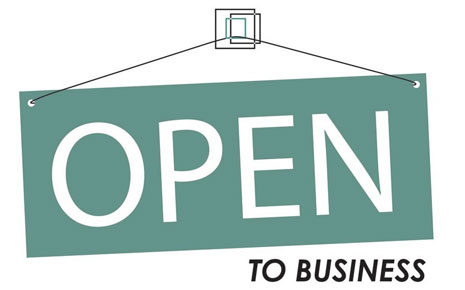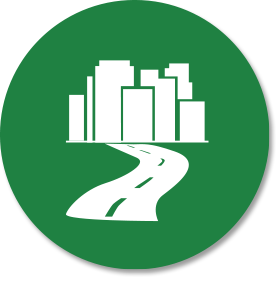Small Business Emergency Assistance Program
The Shoreview Economic Development Authority (EDA) has authorized a second round of the small business emergency assistance forgivable loan program. The program will provide financial assistance to locally owned and operated businesses adversely impacted by the COVID-19 pandemic.
Who is Eligible:
Locally owned and operated businesses with 40 employees or less.
Grant Terms:
Full service restaurants - up to $10,000
All others, up to $5,000,
Funds are to be used for eligible expenses.
Application:
- Starting 12/18 we will be accepting applications for those impacted by Executive Order 20-99, including but not limited to restaurants, gyms, fitness centers, dance studios and martial arts facilities. Click here for application
- All other qualifying businesses are encouraged to apply starting 1/5.
- Applications, and supporting documentation, should be submitted at this secure upload site
Reporting (for Round 1 or Round 2):
If your 2 month timeframe is complete, the following is needed from you in order to get the funds forgiven:
- SBEA Expense Reporting Form - Please sign/fill out the attached form and return it to us, with the required documentation. Click here for reporting form.
- The form, along with supporting documentation, should be submitted at this secure upload site
Click the headings below for additional information.
Assistance Program
Eligibility Requirements
A business must demonstrate that its operations have been directly and adversely affected by the COVID-19 pandemic.
Eligibility
- Be an eligible business including locally owned and operated businesses noted in Executive Orders 20-04, 20-08, and 20-99 such as:
- Restaurants, cafes, coffeehouses and other places of public accommodation offering food or beverage for on-premises consumption
- Gymnasiums, fitness centers, indoor sports facilities, indoor exercise facilities, exercise studios, businesses offering massage therapy or similar body work, spas, salons, nail salons, cosmetology salons and barber shops. This includes, but is not limited to, all salons and shops licensed by the Minnesota Board of Cosmetologist Examiners and the Minnesota Board of Barber Examiners.
- Art, dance and music studios
- Other businesses deemed nonessential under executive orders
- Other businesses as approved by the EDA
- Located in Shoreview
- The business shall have a physical business address within the city and have been operating within the city long enough to demonstrate financial viability.
- Proof of address is required.
- Employ 40 employees or less
- This should be calculated prior to the issuance of the State of Minnesota Emergency Executive Order 20-04 (March 16, 2020).
- In operation before March 1, 2020
- Be in good standing with the city
- Be a conforming or legally nonconforming use under the current zoning regulations of the city
- Not be in violation of the city’s zoning code
- Not have any delinquent taxes, bills or charges due to the city
- Proof of application for other public and private sector assistance
- Applicants are strongly encouraged to claim all applicable private and public insurance and utilize all other sources of applicable assistance available from other private and public sources, including requests for rent/mortgage, utility and loan deferrals or forgiveness. Applicants are also strongly encouraged to apply for emergency loans through the Small Business Administration (SBA) and Minnesota Department of Employment and Economic Development (DEED) prior to applying for this grant. For more information, review DEED'a guide to financial resources for Minnesota small businesses
- Applications must include proof of application submittal, acceptance, approval and/or denial of state and federal emergency financing programs will receive additional consideration.
Ineligible Businesses
Assistance cannot be provided to businesses that:
- Do not have a physical business address within the City of Shoreview (residential based businesses)
- Derive income from passive investments without operational ties to operating businesses
- Primarily generate income from gambling activities
- Generate any part of its income from adult-oriented or tobacco/vaping-related activities
- Have no current or historical financial statements
- Previously received emergency funds from the city
- Are classified as non-profit
Guidelines
Click here for the full Guidelines.
A summary of the small business emergency assistance program guidelines is below:
Amount
Businesses may apply for an emergency grant of up to $10,000 for full service restaurants and up to $5,000 for all other eligible businesses. The EDA will determine the final amounts awarded based on scoring criteria.
Term
All grant funds must be used within two months of the grant contract being fully executed.
Uses
Awarded funds may be used exclusively:
- Current payroll obligations (may not include employees who have been laid off)
- lease or mortgage payments
- utilities
- accounts payable
- property taxes
- other critical business expenses that can’t be paid as a direct result of the COVID-19 pandemic.
Awarded funds may not be used for business owner’s/manager’s personal uses or expenses.
Proof of need
All applicants must demonstrate financial need for grant funds prior to approval. This includes but is not limited to the previous year’s annual gross revenue, average monthly gross revenue prior to COVID-19 and projected monthly gross revenue for the next three months.
Additionally, applicants are encouraged to provide evidence of application submittal, acceptance, approval and/or denial of state and federal emergency financing programs. This could simply include an email response from these agencies.
Disbursement of funds
Funds will be distributed within one to two weeks after a fully executed grant agreement has been received and depending on how grant recipients elect to receive funds.
Termination
The EDA retains the right to terminate any agreement under the emergency assistance program if a grant recipient is found to be in violation of any conditions set forth in the grant guidelines or grant agreement.
Right to deny
The EDA retains the right to deny any application for grant funding.
Grant agreement
After an applicant has been selected to receive funds, the grant recipient will enter into a grant agreement with the EDA. Funds will not be distributed for any grant award until a grant agreement has been executed by all required parties.
Reporting
As a condition for receiving grant funding, all grant recipients are required to submit a brief report to the EDA within two months after receiving grant funds, specifying how the grant funds were used and providing evidence in the form of paid invoices, statements or similar documentation.
Funding availability
The small business emergency assistance program has a limited amount of funds available. Grants will be provided to businesses that meet eligibility requirements. Funding will be provided until the funds are exhausted or the city-declared state of emergency declaration is lifted, whichever comes first.
Indemnification
All grant recipients will be required to indemnify the City of Shoreview the Shoreview Economic Development Authority and any officers acting on their behalf.
Application Process
The application is available here.
Prior to applying, please review the program guidelines to determine if your business is eligible.
1. Complete the small business emergency assistance application
Applicants must complete the small business emergency assistance application. Application requirements include:
- Basic details about the business
- Basic employment and annual gross revenue information
- Information on current operations, including whether the business is currently closed or is providing reduced services
- Narrative descriptions and estimated calculations of the negative impacts on the business due to COVID-19
- Narrative description of the current plans for resuming operations following the COVID-19 crisis
- Supporting documentation, including:
- Proof you own or lease the space your business is located in.
- Proof of submittal, acceptance, approval and/or denial of SBA and DEED loan applications
- Copy of page 1 from business’s most recent federal tax return indicating gross receipts or sales
- A W-9 form (with signature)
- Other supporting documentation you wish to provide to the EDA to assist in understanding the applicant’s situation.
2. Application review
Please submit completed application, and supporting documentation to our secure file upload tool.
The priority application period those businesses listed in 20-99 will be Friday, December 18, through 4:30 p.m. Monday, Jauary 4. Applications received during this time will be evaluated starting January 5th.
Starting January 5th, all other eligible businesses are encouraged to apply. Applications will be evaluated as they are submitted until funds are fully committed.
Applications will be evaluated and grants will be awarded based on business’ compliance with eligibility criteria and application evaluation scores. If additional information or documentation is needed, EDA staff will contact the applicant. Due to an expected high volume of applications, you may consider your application complete if staff does not request additional information within 10 business days after the initial application period ends on January 4th.
3. Fund disbursement
Funds will be distributed to businesses that meet eligibility requirements. Applications will be accepted up to the lifting of state and local emergency orders or when available funds are expended.
Funding Process
1. Notification of approval
If an application is approved and funds are available, the applicant will be notified within 10 business days after the initial application period ends and provided with an electronic grant agreement for signature.
2. Disbursement of funds
Funds will be distributed within one to two weeks after a fully executed grant agreement has been received and depending on how grant recipients elect to receive funds.
3. Reporting fund usage
Small businesses receiving funds must commit to using the funds for eligible program expenses and must agree to document and report specific uses of the funds. Accordingly, all grant recipients are required to submit a brief report to the EDA within two months after receiving grant funds, specifying how the grant funds were used and providing evidence in the form of paid invoices, statements or similar documentation.
Additional Resources
For businesses needing additional resources, such as technical assistance or larger working capital loans, staff will provide ongoing assistance, working with partners and other levels of government to access resources as available, such as Small Business Administration (SBA) and Department of Employment and Economic Development (DEED) loans.
Staff will conduct a check-in with grant recipients within one year of the distribution of funds to learn the effect of the grant, business outcomes such as the economic impact of the grant program (including employees retained or rehired and sales) and whether they match the program’s desired outcomes of business and/or job retention.
The EDA retains the authority and discretion to approve or deny an application and reserves the right to subsequently add further priorities, change eligibility criteria or discontinue the program in response to changing circumstances.
Contact
If you have questions or need assistance completing the grant application, contact COVIDloan@shoreviewmn.gov
State
MN Vest
MNvest is Minnesota’s equity crowdfunding program for small businesses. Minnesota law now allows businesses to raise money online from Minnesota investors. MNvest offers small businesses in the state the opportunity to raise money from Minnesotans with just a few thousand dollars to invest. Similar to reward-based crowdfunding sites (like Kickstarter), MNvest enables Minnesota businesses to legally advertise investment opportunities to all Minnesota residents.
Gopher Angels
Gopher Angels (GA) is a network of accredited investors seeking to invest capital and expertise in early-stage Minnesota businesses. GA looks for outstanding entrepreneurs who can turn their vision into a successful business. In addition to financial support, GA members will provide businesses with strategic guidance, valuable connections, and business support to take your company to the next level.
Indian Business Loan Program
The program supports the development of Indian-owned and operated businesses and promotes economic opportunities for Indian people in Minnesota. Loans may be up to 75 percent of project costs and feature favorable interest rates and repayment terms.
Innovative Business Development Public Infrastructure
Innovative Business Development Public Infrastructure provides grants to local governmental units on a competitive basis statewide for up to 50 percent of the capital cost of the public infrastructure necessary to expand or retain jobs in innovative businesses and organizations.
Metropolitan Council Underutilized Business Program (MCUB)
The Metropolitan Council Underutilized Business Program (MCUB) is designed to engage and encourage the use of underutilized Minnesota-based small businesses for the Council's projects and procurements.
MCUB firms can do business with the Council in two ways:
- Through procurements, selling products or services to the Council
- Through projects, as a subcontractor working on the Council's projects
Qualifying as MCUB
In order to qualify as an MCUB firm the business must be Minnesota-based and have an active certification from one of these programs:
- DBE (MNUCP)
- Targeted Group Business (MN Dept of Admin)
- CERT Certified Women Owned or Minority Owned Only (City of St Paul)
- Veteran Owned Business (U.S. Dept. of Veteran Affairs)
Applying for DBE, Targeted Group or CERT Certification
The Minnesota Department of Administration has created a one-stop-shop certification portal for businesses that wish to submit an application for any of the three certifications listed above.
Directory of MCUB Firms
Firms with these active certifications will be listed in the MCUB Directory, which is updated monthly.
MCUB Participation Contract Goals for Locally Funded Projects
Project contracts will include MCUB participation goals if they meet the following three requirements:
- The project is locally funded
- There are opportunities for subcontractors
- The contract value is more than $100,000
All bidders/proposers for projects with MCUB goals will be required to meet the MCUB goal percentage. If the bidder/proposers is not able to meet the goal they may receive a waiver from OEO based on their Good Faith Efforts.
MCUB Select
The Metropolitan Council has implemented a sheltered market solicitation process called MCUB Select. The MCUB Select Program is intended to reduce barriers and increase utilization of MCUB firms that do business with the Council.
MCUB Select will apply when at least three MCUB firms are eligible, available and capable of performing the scope of work identified within the solicitation. Only MCUB firms are eligible to participate in the MCUB Select program. Firms eligible to participate in the Council’s MCUB Select program must, at the time of solicitation, qualify as an MCUB.
Procurements eligible for MCUB Select must not have any federal funding nor subcontracting opportunities and must have work scopes that can be performed by eligible MCUB firms.
Firms participating in the MCUB Select Program are considered eligible until awarded and successfully completed projects totaling $200,000 in contract value or three individual projects, whichever comes first.
Minnesota Innovation Loans for Entrepreneurs (MILE)
The Minnesota Innovation Loans for Entrepreneurs (MILE) program provides interest-free loans to early-stage businesses developing or producing high-tech products or services in Minnesota. This program is an initiative of the Minnesota Investment Fund.
Minnesota Job Skills Partnership (MJSP)
Provides training grants of up to $400,000 to educational institutions that partner with businesses to develop new job training or retraining for existing employees.
A cash or in-kind contribution from the contributing business must match program funds on at least a one-to-one basis (wages paid to employees during training may be counted, as well as any equipment used).
A “Short Form” application is available for grants of $50,000 or less to assist smaller businesses in getting the customized training they need.
Minnesota STEP Grant Program
Minnesota State Trade and Export Promotion (STEP) grant program awards funds to Minnesota businesses planning to grow their exports. It provides financial and technical assistance to qualifying Minnesota businesses with an active interest in exporting products or services to foreign markets. Participants may be first-time exporters or companies currently exporting but looking to expand into new international markets.
MN Reservist and Veteran Business Loan Program
Foreign Trade Zones
Foreign Trade Zones are commerce sites (industrial sites, buildings) set up in or near U.S. Customs ports of entry where merchandise is considered legally outside U.S. Customs territory. The zones are operated as public utilities by states, port authorities, other political groups, or corporations charted by the state.
Companies can use foreign trade zones to reduce duty payments, streamline supply chain costs and improve your competitive position in domestic and foreign markets.
There are eight General Purpose Zone sites in Minnesota, including six in the Minneapolis-St. Paul metropolitan area (FTZ#119), one site in Duluth (FTZ#51), and one site in International Falls (FTZ#259). Individual companies may apply to the U.S. Department of Commerce to designate an area of their facility as a Subzone. This situation is ideal for companies too far from a General Purpose Zone.
Property Assessed Clean Energy Programs (PACE)
PACE is an innovative mechanism for financing energy efficiency and renewable energy improvements on private property. It allows a property owner to finance the up-front cost of energy or other eligible improvements and then pay the costs back over time through a voluntary assessment attached to the property. Eligible projects include HVAC, lighting, motors, compressed air, new manufacturing equipment, solar, wind, and geothermal. Qualifying properties include industrial/manufacturing, multi-family housing (5+ units), agriculture, nonprofit, and places of worship.
Research and Development Tax Credit
The tax credit for R & D expenditures is 10 percent, up to the first $2 million in eligible expenses. The credit is 2.5 percent for eligible expenses above $2 million.
Individuals involved in partnerships, S-corporations and limited liability companies are allowed to claim the credit against their individual income taxes. This opens up the tax credit to more small and medium-sized businesses.
Scitechsperience Internship Program
SciTechsperience is a paid internship program that connects college students in science, technology, engineering and math disciplines with rewarding hands-on opportunities at Minnesota companies that need their skills. The focus is on strengthening Minnesota's STEM industries and developing an experienced and well trained workforce. Learn more about Scitechsperience.
SCORE
SCORE provides free, confidential business advice through volunteer business experts. SCORE is a nonprofit resource partner of the U.S. Small Business Administration (SBA). You can meet with one or several mentors via email, video chat, or face-to-face in the local chapter. Mentors are experienced in all aspects and stages of business development, whether starting a business or growing an existing company.
Small Business Development Center (SBDC)
The SBDC provides free, confidential professional expertise and guidance to established businesses. Business consultants provide relevant, realistic, and sound advice in several areas, including: access to capital and loan packaging; financial analysis and assessment; accounting systems and literacy; marketing and research; marketing plan development; feasibility analysis; startup assistance; business plan development; electronic commerce/web site development; and succession and strategic planning.
Bioscience Incentive Program
The program provides production payments to encourage commercial-scale production of advanced biofuels, renewable chemicals, and thermal energy production from biomass.
Border Cities Enterprise Zones
The Border-Cities Enterprise Zone Program provides property tax credits, debt financing credit on new construction, sales tax credit on construction equipment and materials, and new or existing employee credits to qualifying businesses in the border cities of Breckenridge, Dilworth, East Grand Forks, Moorhead, and Ortonville, as well as in the Development Zone of Taylor's Falls.
Data Centers Incentive
Companies that build new data or network operation centers of at least 25,000 square feet and invest $30 million, or refurbish an existing center of at least 25,000 square feet and invest $50 million, qualify for sales tax exemptions for 20 years on computers and servers, cooling and energy equipment, energy use and software, and they pay no personal property tax ever. Companies have 48 months to complete a new center and 24 months to complete a refurbished center.
Data Centers Sales Tax Incentives
Companies that build new data or network operation centers of at least 25,000 square feet and invest $30 million, or refurbish an existing center of at least 25,000 square feet and invest $50 million, qualify for sales tax exemptions for 20 years on computers and servers, cooling and energy equipment, energy use and software, and they pay no personal property tax ever. Companies have 48 months to complete a new center and 24 months to complete a refurbished center.
Qualifying projects receive sales tax exemptions for up to 20 years on:
- Computers and servers
- Cooling and energy equipment
- Energy use
- Software
And pay no personal property tax. Ever.
In addition, Minnesota DOES NOT tax:
- Personal property
- Inventories
- Utilities
- Internet access
- Information services
- Custom-created software
Disadvantaged Business Enterprise Programs (DBE)
The DBE program is a project for increasing the participation of women- and minority-owned businesses in the award of federally assisted contracts. See current contracting opportunities at the Council.
The Council has established goals for contracts for fiscal years 2017-2020:
- 15% overall DBE for transit contracts
- 7% Minority (MBE) and 7% Woman (WBE) Fair Share for environmental service contracts
Applying for DBE Certification
The Minnesota Unified Certification Program consists of a group of state and local agencies who work together to certify firms as DBE’s. The current certifying agencies are City of Minneapolis, Metropolitan Airports Commission, Metropolitan Council and Minnesota Department of Transportation. The MNUCP acts as a one-stop-shop for businesses that qualify as a DBE or wish to submit an application for DBE status.
Directory of DBE-Certified Firms
The DBE directory lists firms certified by the MNUCP as DBE Businesses, updated biweekly. Businesses in this directory can be based in any state, but are certified to work in Minnesota. Find detailed information for each firm by searching the MNUCP DBE Directory.
DBE Participation Contract Goals for Federally Funded Projects
Project contracts will include DBE participation goals if they meet the following three requirements:
- The project is federally funded
- There are opportunities for subcontractors
- The contract value is more than $50,000?
OEO staff sets specific participation goals on each project contract. All bidders/proposers for projects with DBE goals will be required to meet the DBE goal percentage. If the bidder/proposers is not able to meet the goal they may receive a waiver from OEO based on their Good Faith Efforts.
EB-5 Investor Program
The U.S. Department of Homeland Security's Citizenship and Immigration Services division (USCIS) administers the Immigrant Investor Program, also known as EB-5.
The program is intended to stimulate the U.S. economy through job creation and capital investment by offering foreign investors a permanent resident visa for investing $1 million (or at least $500,000 in a Targeted Employment Area) and creating or preserving at least 10 jobs for U.S. workers.
Emerging Entrepreneur Loan Program
DEED's Emerging Entrepreneurs Fund primarily supports micro-enterprises and small businesses with loans of up to $150,000 to businesses owned by minorities, low-income persons, women, veterans, and/or persons with disabilities. Businesses located in low-income areas will be given priority. The program will finance a variety of start-up and expansion costs, including normal expenses such as machinery and equipment, inventory and receivables, working capital, new construction, renovation, and site acquisition. Financing of existing debt is not permitted.
DEED provides grant funds to nonprofit lenders, which use these funds for loans.
Local
CEO Next Business Institute
Businesses participate in a nine-month long program with peer CEOs, including customized business research, as well as practical tools and techniques to help businesses grow. Privately-held businesses with 10-99 employees, annual revenue between $1 to $50 million, and show a potential for job creation and longer-term business growth are eligible.
Minnesota Investment Fund (MIF)
Provides financing to help add new workers and retain high- quality jobs in industrial, manufacturing, and technology-related industries. Funds are awarded to local units of government who provide loans to assist expanding businesses.
Projects must meet minimum criteria for private investment, number of jobs created or retained, and wages paid. At least 50 percent of total project costs must be privately financed through owner equity and other lending sources. Maximum of $500,000 per project.
Terms are up to 20 years for real estate and up to 10 years for machinery and equipment. Interest rates are negotiated.
Minnesota Job Creation Fund (JCF)
The Job Creation Fund provides awards of up to $500,000 and capital investment rebates of up to $500,000 for qualifying businesses.
The program is available to businesses engaged in manufacturing, warehousing, distribution, technology-related industries, and other eligible activities. Companies must work with the local government (city, county or township) where a project is located to apply to DEED to receive designation as a Job Creation Fund business.
Open to Business
 The City of Shoreview works to build a strong business community by supporting business growth, retention, expansion and attraction. We provide education and networking opportunities and provide communication between businesses and city officials. In addition, Ramsey County’s Open to Business program has been designed to provide direct support to Shoreview’s businesses.
The City of Shoreview works to build a strong business community by supporting business growth, retention, expansion and attraction. We provide education and networking opportunities and provide communication between businesses and city officials. In addition, Ramsey County’s Open to Business program has been designed to provide direct support to Shoreview’s businesses.
The Open to Business program provides FREE direct technical assistance and other forms of support to small business owners and entrepreneurs. All current business owners and aspiring entrepreneurs intending to establish, purchase or improve a business within the county are eligible and encouraged to participate.
Services Available:
- Business plan development.
- Feasibility analysis.
- Cash flow and financing projections.
- Marketing planning and material preparation.
- City and state licensing and regulatory assistance.
- Loan packaging and other assistance in obtaining financing.
Funding Available:
- Capital through MCCD’s Emerging Small Business Loan Program for qualifying businesses.
- Ramsey County Small Business Loan Program.
Open to Business is a partnership between Ramsey County and the Metropolitan Consortium of Community Developers (MCCD).
Ramsey County Workforce Solutions
Ramsey County Workforce Solutions supports the success of area businesses through quality workforce development services. With access to over 25,000 job candidates, Workforce Solutions will help find your next staff member or up-skill your current workforce. Services are free and made available by the public workforce and economic development system.
Tax Abatement
The City is allowed to refund a portion of a company’s property taxes for a set period of time when a company makes improvements on vacant land or a building that will result in higher property taxes being paid. Projects must meet the "but for" test and align with the City’s Business Subsidy Policy, including specific hiring and wage goals.
Tax Increment Financing
The City is allowed to create Tax Increment Financing Districts for the purpose of redevelopment, economic development, and public infrastructure related to a project. Generally, the costs for development or redevelopment are fronted utilizing pay-as-you- go financing; once complete, the development is then reimbursed from the difference in property tax values between the original value of the property and the value after the project is completed. Projects must meet the “but for” test and align with the City’s Business Subsidy Policy, including specific hiring and wage goals.
BizRecycling: Free Business Recycling
BizRecycling is a program to help businesses in Ramsey County and Washington County start, expand, improve, and manage business recycling, including organic waste collection, such as food waste. We work with businesses of all sizes and types: restaurants, offices, multi-unit residential properties, schools, clinics, golf courses, warehouses, and more.
The BizRecycling program was started in 2013 to help East Metro businesses reduce waste and recycle better. BizRecycling connects businesses with recycling experts who can help identify recycling and waste reduction opportunities. We offer free on-site consultations, technical assistance, expert advice and guidance. Businesses can request free container labels for their trash and recycling bins. We also have business recycling grants available (up to $10K per business!) to start or improve business recycling.
The BizRecycling program is an initiative of Ramsey/Washington Recycling & Energy (R&E). R&E was formed over 30 years ago by Ramsey and Washington Counties as a joint powers agreement. R&E is responsible for administering joint solid waste resource recovery activities and other selected programs on behalf of the two counties. The Project Board is comprised of nine (9) elected county commissioners, five from Ramsey County and four from Washington County. The BizRecycling program is staffed by members of the counties’ respective public health departments and is served by a variety of consultants.
How It Works
Step 1: Connect with Us
Call or submit a contact us form
Step 2: Free Consultation
We help develop yourcustomized recycling plan
Step 3: Apply for Money
Our grants make it easier foryour business to reduce waste
Step 4: Recycle Better
Ongoing support ensures your business recycling success











